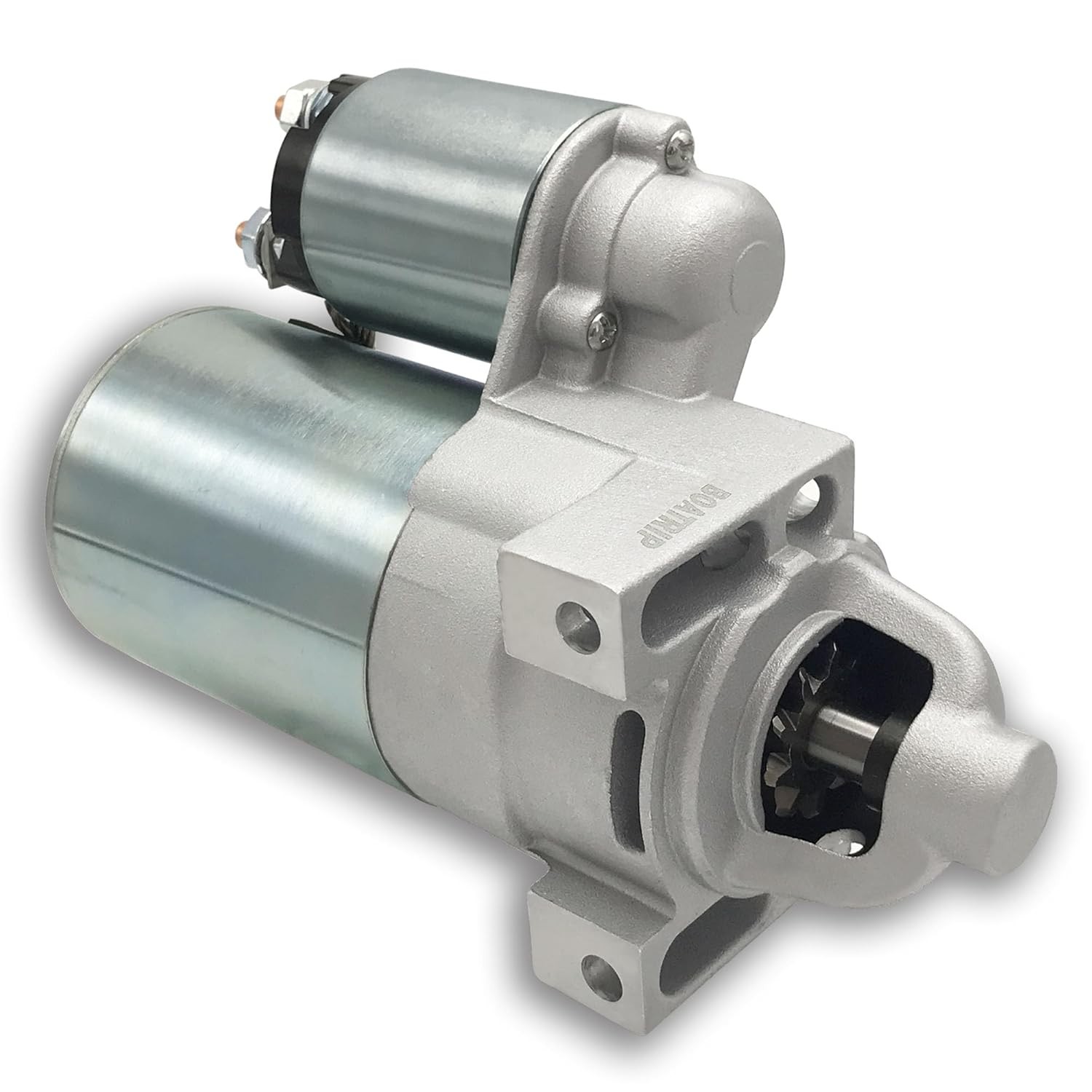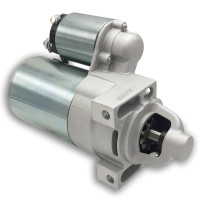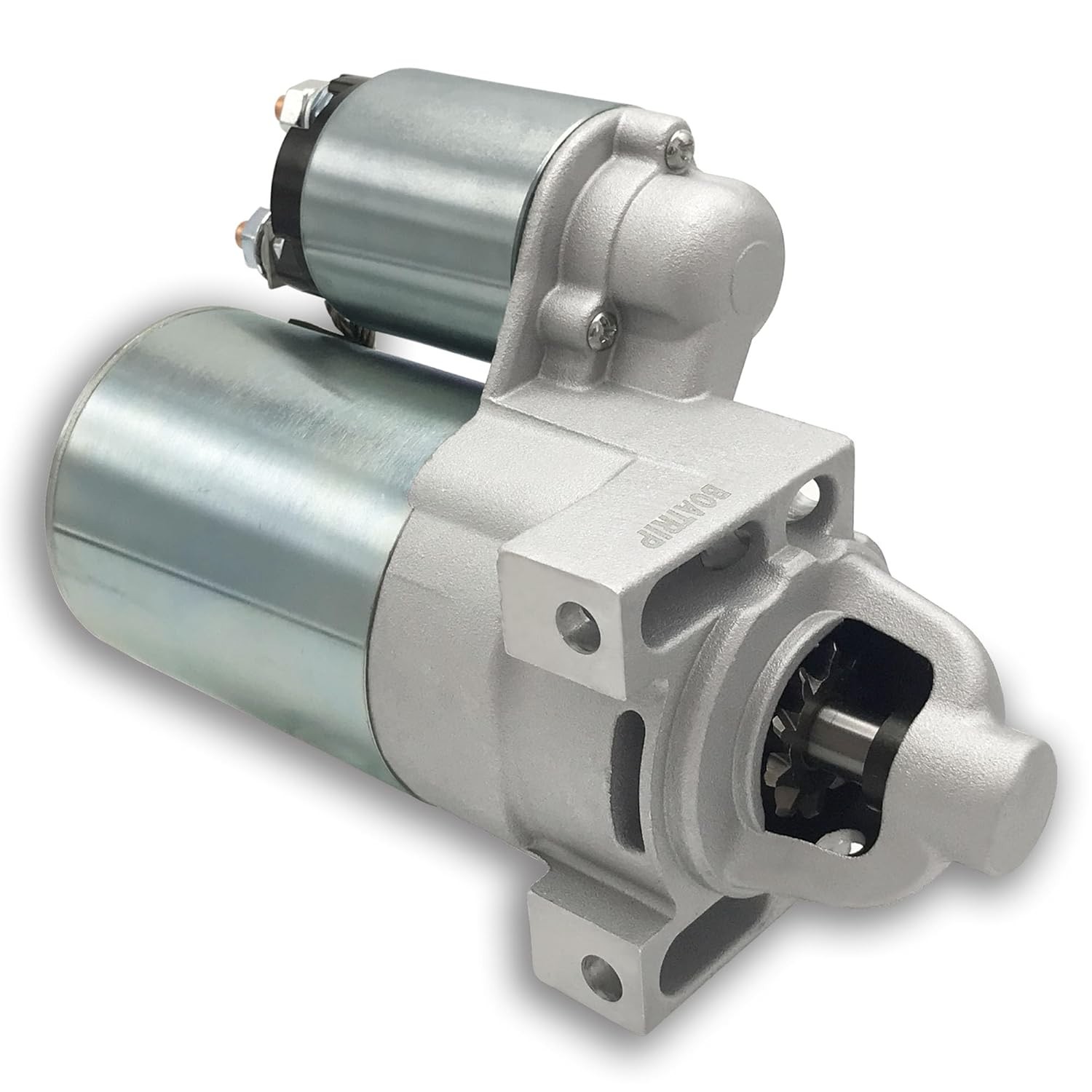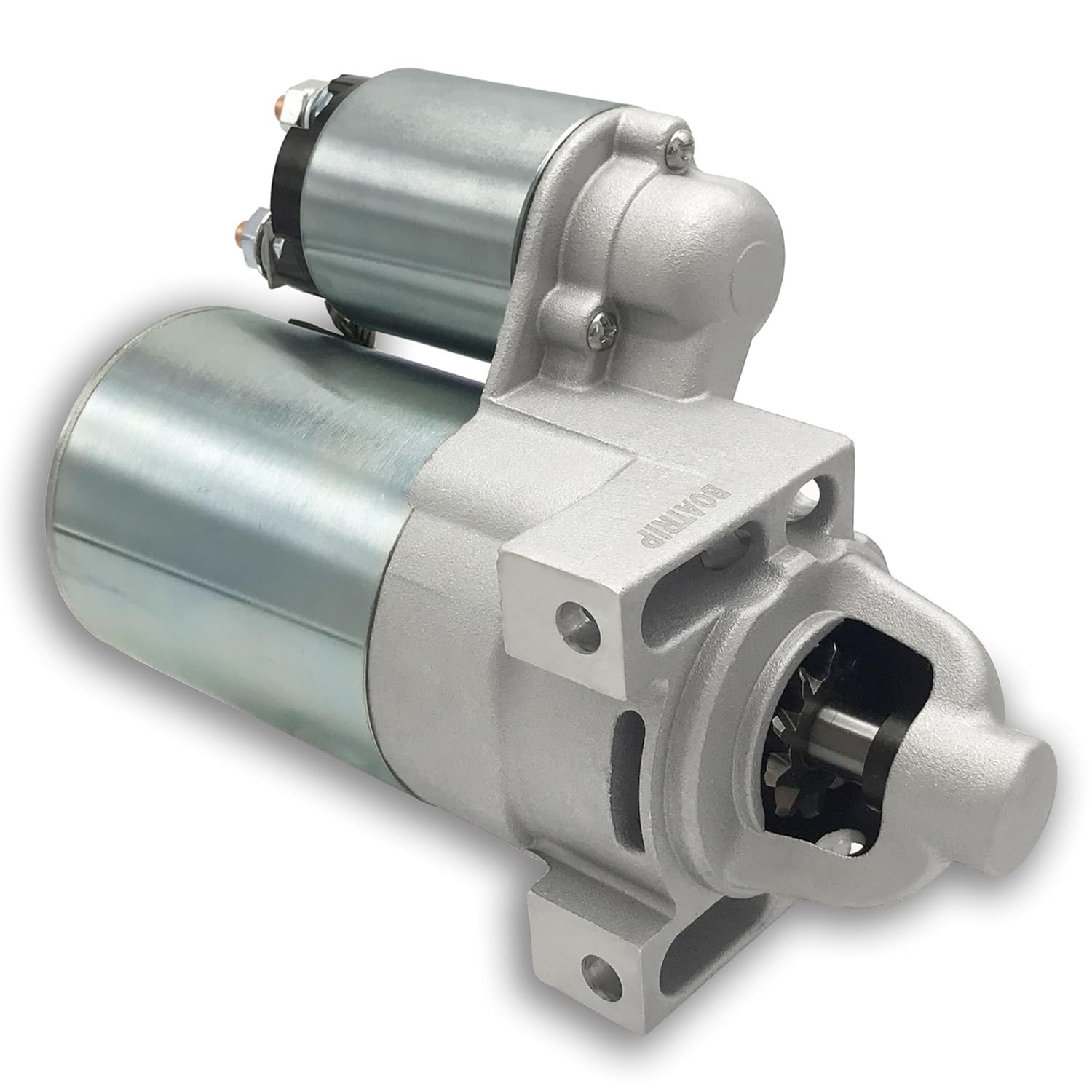The Clicking Conundrum: When a Starter Motor Refuses to Start

Strong 8k brings an ultra-HD IPTV experience to your living room and your pocket.
Saturday morning at the marina was alive with activity. Boat owners rushed to get their vessels ready, seagulls squawked overhead, and the air smelled like gasoline mixed with the fresh salt of the bay. My friends and I had been counting down the days to our big fishing trip, and our boat "Sea Breeze" was finally docked, loaded with tackle boxes, sunscreen, and coolers full of sandwiches. But as I turned the ignition key, instead of the engine roaring to life, we heard only a rapid "click-click-click" sound that sent a chill down my spine.
My heart dropped like a stone. "What is that noise?" asked Jake, leaning over the side of the boat to peer at the motor. His eyebrows furrowed as I tried the key again, the same frustrating clicking echoing across the dock. No engine rumble, no vibrations—just that endless clicking. "That’s not good," said Mia, who’d already pulled out her phone to check the weather. "The forecast says storms roll in by afternoon. We need to get moving."
Just then, Mr. Hale, a retired mechanic who kept his boat next to ours, wandered over. He was wearing his usual faded blue overalls, stained with years of grease and oil, and a baseball cap with "Marina Volunteer" embroidered on the front. "Trouble in paradise?" he asked, noticing our worried faces. When I explained the clicking sound, he knelt down beside the motor, his weathered hands gently tapping the metal casing. "Starter motor issue," he said confidently. "That clicking means it’s getting power but can’t engage the engine. Probably a dead solenoid or worn-out gears."
We’d spent all morning getting the boat ready—scrubbing algae off the hull, organizing the fishing rods, and even polishing the windshield— but we’d skipped testing the engine. "Big mistake," I muttered to myself, kicking at a loose rope on the deck. The dock was getting busier by the minute; other boats were casting off, their engines roaring as they headed toward open water. "We can’t miss the high tide," Mia said, checking her tide app again. "If we don’t leave in 45 minutes, we’ll be stuck here until tomorrow."
Mr. Hale stood up, brushing dust off his knees. "Let’s check the easy stuff first," he said, reaching for a screwdriver from his pocket. He disconnected the battery cables, which were covered in a greenish corrosion, and scrubbed them with a wire brush until they shone. "Saltwater’s tough on these connections," he explained, reattaching the cables tightly. "Try it now." I held my breath and turned the key. The clicking came faster this time, but the engine still refused to start. "Yep, it’s definitely the starter," Mr. Hale said with a nod. "The solenoid’s clicking, but the motor isn’t spinning. You need a new one."
Panic started to set in like a heavy weight in my chest. We’d been planning this trip for months, and now it was falling apart because of some tiny part? Mr. Hale must have noticed my face because he smiled and clapped me on the shoulder. "Don’t worry, kid. I keep spares for situations like this. Had the same problem with my boat last month." He walked over to his own boat, a weathered old fishing vessel named "Lucky Charm," and returned carrying a small metal toolbox.
He opened the toolbox with a satisfying click and pulled out a shiny new starter motor, still wrapped in plastic. "Modern starter motor models are way better than these old ones," he said, handing it to Jake. "This one’s designed for marine use—waterproof, rust-resistant, all that good stuff. Should fit your engine perfectly." As Jake examined the part, Mr. Hale explained how starter motors work: "It’s like the engine’s wake-up call. This little motor spins the big engine to get it going. When it’s broken, nothing happens."
While Mr. Hale and Jake got to work, Mia and I fetched rags and tools. We watched as they carefully removed the old starter motor, which looked ancient compared to the new one. Rust covered its base, and when Mr. Hale pointed to the gear mechanism, we could see the teeth were worn down to nubs. "See these?" he said, running a finger over the damaged gears. "They’re supposed to grip the engine’s flywheel, but they’re too worn now. That’s why you get clicking but no start—like trying to start a car with a flat battery."
The morning sun climbed higher as they worked, warming our backs as we passed tools and held flashlights. Mr. Hale talked us through each step: disconnecting the wires (making sure to note which went where), unbolting the old starter, and aligning the new one with the engine mounts. "Take your time with the bolts," he told Jake. "Too tight and you’ll strip the threads; too loose and it’ll vibrate itself apart." After about 30 minutes of careful work, they connected the last wire and stepped back.
"All right, let’s test it," Mr. Hale said, wiping grease from his hands with a rag. My hands were sweaty as I gripped the ignition key. Jake and Mia leaned in, holding their breath, while Mr. Hale nodded encouragingly. I turned the key—and the engine sputtered for a second before roaring to life, its powerful hum vibrating through the entire boat. We all cheered, high-fiving each other as the motor settled into a steady purr. "Told you it would work," Mr. Hale laughed, his eyes crinkling at the corners.
We quickly cast off from the dock, waving goodbye to Mr. Hale as we headed toward our favorite fishing spot. The bay sparkled in the sunlight, and within an hour, we were reeling in small bass and laughing about our morning adventure. "Who knew a tiny part could cause so much stress?" Jake said, holding up his latest catch. Mia nodded, taking a photo of the fish for her social media. "But now we know what to do if it happens again. Thanks, Mr. Hale!"
By noon, our cooler was half-full, and we decided to head back before the storms arrived. The engine ran perfectly the whole way, no strange noises or hesitation. When we docked, Mr. Hale was waiting, and we gave him a big bag of our catch as a thank-you. "Pass on the knowledge," he said, accepting the fish with a grin. "Next time someone’s stuck with a clicking starter, you’ll know how to help."
As we packed up, I thought about how something as small as a starter motor had almost ruined our day. It wasn’t the most exciting part of the boat, but it was one of the most important. That afternoon, I looked up starter motor maintenance tips on my phone, making notes about cleaning connections and checking gears regularly. "Pro tip for next time," I told my friends. "Always test the engine before you leave the dock—and maybe keep a spare starter motor handy."
The storm rolled in as we drove home, but we didn’t care. We’d caught fish, avoided disaster, and learned something new. And whenever I hear a boat engine start now, I smile, remembering that clicking sound and how a little knowledge and the right part had saved our day. Sometimes the smallest things turn out to be the most important—especially when you’re out on the water.
Note: IndiBlogHub features both user-submitted and editorial content. We do not verify third-party contributions. Read our Disclaimer and Privacy Policyfor details.






